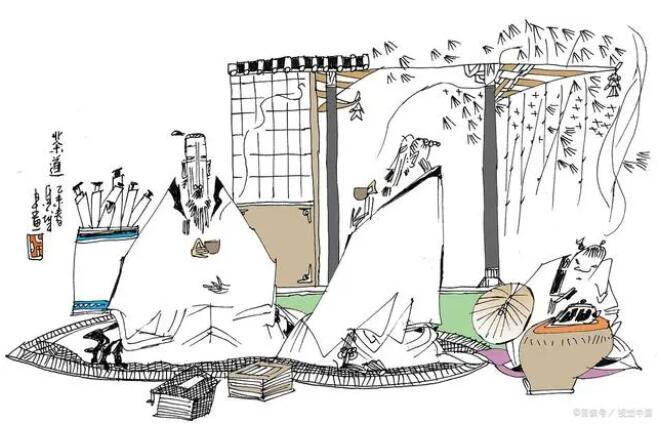The origin of Chinese tea can be traced back to ancient times, with the earliest tea found on wild trees in Yunnan, China. The use and dissemination of tea in China has gone through a long historical process, gradually forming a unique tea culture and tea ceremony system.
Tea is widely used in communication between China and the West, not only changing people's dietary habits, but also promoting cultural and trade exchanges.

In Chinese history, tea has always been regarded as a precious gift and medicine, with the effects of clearing heat, detoxifying, and refreshing the mind. During the Tang and Song dynasties, tea gradually became a drink for the court aristocracy and began to be introduced to the people. The traditional art and cultural connotations of the tea ceremony reflect the wisdom and cultural essence of the Chinese people, and are also important representatives of Chinese culture worldwide.
The introduction of tea not only changed the dietary habits of Europeans, but also brought substantial substances. The production and trade of tea have become an important component of China's economy and have also driven the economic development of tea production areas. The dissemination and promotion of tea have promoted cultural exchanges between China and Europe, and also deepened people's understanding and understanding of Chinese culture.

Many Chinese and foreign celebrities have shown unique attitudes towards drinking tea. For example, ancient Chinese literati and literati often used the phrase "drinking tea to discuss the Tao", demonstrating the close connection between tea and culture. In Europe, Queen Victoria of the UK is a tea enthusiast who even pioneered the tradition of "afternoon tea", which has been going on in the UK for hundreds of years. In addition, former US President Nixon was also a tea enthusiast, and he was also attracted to Chinese tea culture during his visit to China.
The influence of Chinese tea has had a substantial impact on the living habits of Europeans. The introduction of tea not only changed the dietary habits of Europeans, but also brought substantial substances, becoming an important component of China's economy and driving the economic development of tea production areas. The dissemination and promotion of tea have promoted cultural exchanges between China and Europe, and also deepened people's understanding and understanding of Chinese culture.

In short, Chinese tea, as an important component of traditional Chinese culture, has had a profound impact on the exchange between China and the West and the development of world tea culture. Tea not only changes people's dietary habits, but also promotes cultural exchange and trade exchanges. The tea drinking attitudes of Chinese and foreign celebrities also reflect the close connection between tea and culture. The introduction of tea not only changed the dietary habits of Europeans, but also brought substantial substances, becoming an important component of China's economy and driving the economic development of tea production areas.